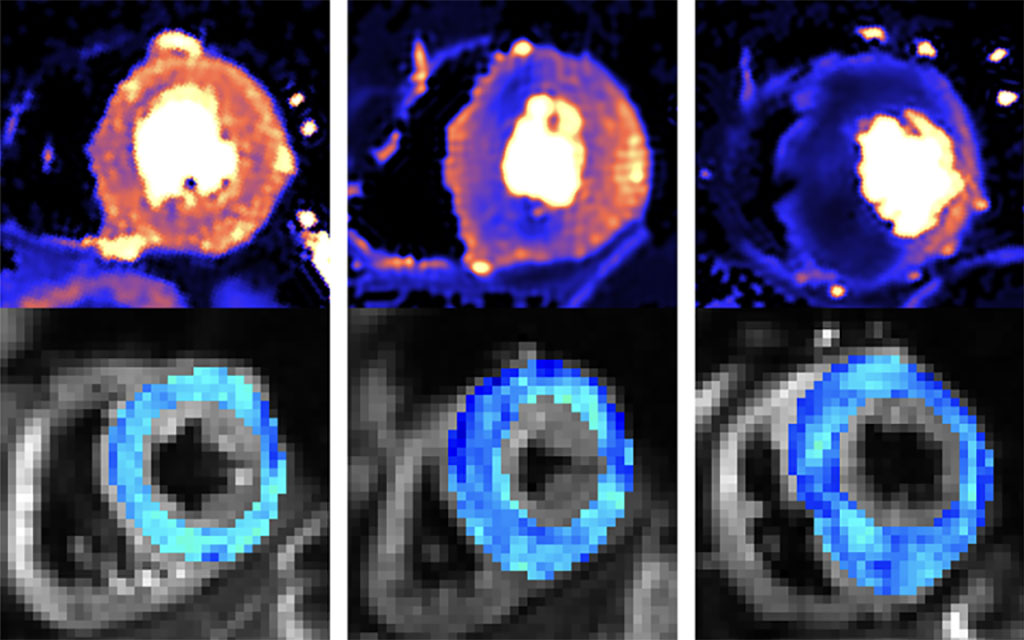New Scanning Method Combines Two MRI Techniques to Detect Deadly Heart Condition Before Symptoms Appear
Posted on 20 Jul 2023
Hypertrophic cardiomyopathy (HCM) is a genetic disorder characterized by thicker than normal heart muscle walls, affecting the heart's ability to pump blood efficiently. HCM is a primary cause of heart failure and sudden cardiac death. A new study has revealed that a combination of two types of heart scan techniques could enable medical professionals to detect HCM earlier than current conventional tests allow. This early detection of HCM could also support trials exploring gene therapies and medications aimed at preventing the disease's development in high-risk individuals.
In collaborative research involving investigators from University College London (UCL, London, UK), the team analyzed the hearts of three groups: healthy individuals, patients already diagnosed with HCM, and people with an HCM-inducing genetic mutation but no observable signs of the disease (no heart muscle thickening). The team employed two advanced heart scanning techniques: cardiac diffusion tensor imaging (cDTI), a type of MRI scan that reveals how individual heart muscle cells are organized and packed together (the heart's microstructure), and cardiac MRI perfusion (perfusion CMR), which identifies problems with small blood vessels supplying the heart muscle (microvascular disease).

The scans revealed that individuals with overt HCM symptoms exhibit severely disorganized heart muscle cells and a high incidence and severity of microvascular disease compared to healthy participants. Importantly, the scans were also capable of detecting abnormal microstructure (muscle cell disorganization) and microvascular disease in those carrying the problematic gene yet without any symptoms or muscle thickening. The researchers found that 28% of these individuals had blood supply defects compared to healthy volunteers. This enabled doctors to more accurately identify early HCM signs developing in patients' hearts.
Mavacamten - the first medication to slow HCM progression - recently received approval in Europe, allowing doctors to mitigate the disease's severity once symptoms and muscle thickening become apparent. In addition, genetic therapies are being developed that could potentially prevent symptoms altogether by intercepting HCM at an early stage. Perfusion CMR is already employed in some clinics to distinguish HCM patients from other causes of muscle thickening. The researchers believe that these groundbreaking therapies, combined with cDTI and perfusion CMR scans, offer doctors the best opportunity yet to treat high-risk HCM individuals early enough to prevent the disease's development.
“The ability to detect early signs of HCM could be crucial in trials testing treatments aimed at preventing early disease from progressing or correcting genetic mutations. The scans could also enable treatment to start earlier than we previously thought possible,” said Dr. George Joy from the UCL Institute of Cardiovascular Science who led the research. “We now want to see if we can use the scans to identify which patients without symptoms or heart muscle thickening are most at risk of developing severe HCM and its life-changing complications. The information provided from scans could therefore help doctors make better decisions on how best to care for each patient.”
Related Links:
UCL














